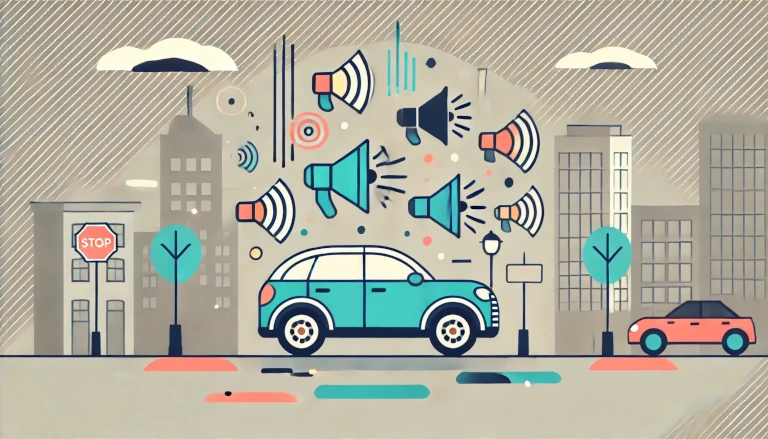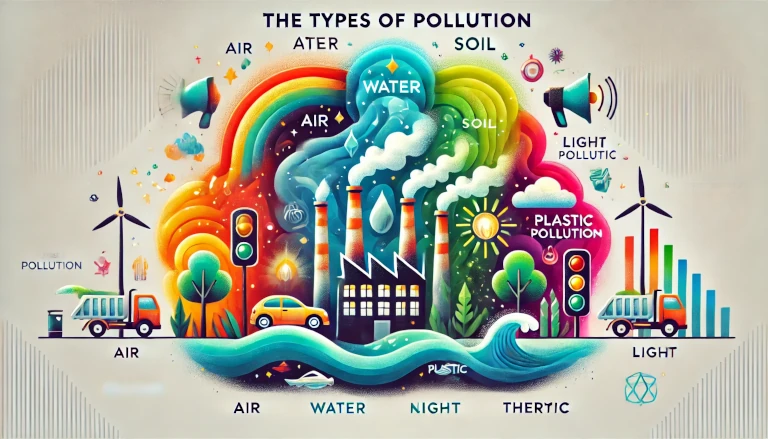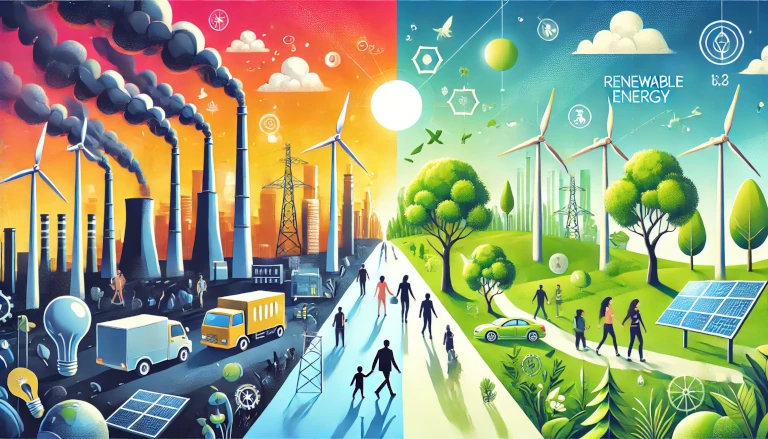Noise pollution refers to unwanted or harmful levels of sound in the environment that disturb human and animal life. It is often overlooked compared to other types of pollution, but it can have serious health and environmental consequences. In this blog post, we will explore what noise pollution is, its causes, effects, and some practical solutions to reduce it.
Whether it’s the constant hum of traffic, loud music, or construction work, noise pollution affects everyone. Let’s break down this issue in simple terms so that everyone can understand how it impacts our daily lives and what we can do to minimize it.
What Exactly is Noise Pollution? 🔊🌍
Noise pollution is any unwanted or excessive sound that interferes with normal activities like sleeping, working, or communicating. The World Health Organization (WHO) defines noise above 65 decibels (dB) as being potentially harmful. Long-term exposure to such noise levels can lead to health problems, while extremely loud sounds (above 85 dB) can cause immediate hearing damage.
For example, if you live near a busy road or an industrial area, the constant sound of cars or machinery can be classified as noise pollution. Even loud music in public spaces or heavy construction work contributes to the problem.
Causes of Noise Pollution 🚗🔨🎶
There are many sources of noise pollution, especially in urban areas. Here are some of the major causes:
1. Traffic Noise 🚗🛵
The constant honking, engine sounds, and movement of vehicles on the road create a significant amount of noise. As cities grow more congested, traffic noise becomes one of the biggest contributors to noise pollution.
2. Industrial and Construction Activities 🏗️🔨
In urban areas, construction sites and factories produce loud noises. Heavy machinery like drills, bulldozers, and cranes contribute to high levels of noise pollution in these regions.
3. Air and Rail Traffic ✈️🚂
Living near an airport or a railway station means constant exposure to loud noises from airplanes taking off and landing, or the sound of trains passing by. These sounds can be particularly disruptive to both humans and animals.
4. Loud Music and Entertainment 🎶🔊
Loud music from concerts, public events, or even personal devices played at high volume can also contribute to noise pollution. When this noise exceeds a safe limit, it disrupts the peace in public and residential spaces.
Effects of Noise Pollution on Health and Environment 🏥🌿
Noise pollution can have serious consequences for both human health and the environment. Some of the major effects include:
1. Health Problems 🏥
Long-term exposure to high levels of noise can cause several health issues, including:
- Hearing loss: Prolonged exposure to loud noise can damage the inner ear, leading to hearing impairment.
- Stress and anxiety: Constant noise can trigger stress and cause anxiety, leading to increased blood pressure and cardiovascular problems.
- Sleep disturbances: Noise pollution, especially at night, can disrupt sleep patterns, affecting overall well-being.
2. Impact on Wildlife 🦅🌿
Wildlife is also severely affected by noise pollution. Birds, for instance, rely on sound for communication and navigation. Loud noises can disrupt their ability to find food or avoid predators. Animals living near urban areas may suffer from disorientation, which can lead to changes in their natural behaviors.
3. Reduced Productivity 📚💼
In workplaces or schools, constant noise can lower productivity levels by making it difficult to focus or concentrate. This not only affects performance but can also contribute to higher levels of fatigue and irritability.
Solutions to Reduce Noise Pollution 🛠️🔇
While completely eliminating noise pollution may not be possible, there are practical solutions that can help minimize it:
1. Soundproofing 🏠
Installing soundproof windows and doors in homes and offices can help block out external noise. Using curtains and carpets can also absorb sound and reduce noise levels indoors.
2. Limiting Use of Horns and Sirens 🚗🔕
Governments can enforce stricter rules on honking and using sirens in residential areas. Creating “no-horn” zones near hospitals and schools can help reduce noise in sensitive areas.
3. Green Spaces 🌳🌿
Planting more trees and creating green belts in urban areas can help act as natural sound barriers, absorbing noise from traffic and industrial activities.
4. Public Awareness 📢
Educating people about the effects of noise pollution and encouraging quieter practices, like using noise-canceling devices or lowering the volume in public spaces, can make a big difference.
Real-World Example: Noise Pollution in Cities 🏙️🔊
In cities like New York or Delhi, noise pollution levels are extremely high due to heavy traffic, construction work, and population density. These cities are now taking steps to combat noise pollution by implementing noise control regulations, installing noise monitoring devices, and encouraging public transport usage to reduce traffic noise.
Understanding and Tackling Noise Pollution 🛑🔇
Noise pollution is a growing environmental issue that can negatively impact our health, productivity, and quality of life. Understanding the sources and effects of noise pollution is the first step toward finding solutions. By adopting soundproofing, promoting green spaces, and raising public awareness, we can help reduce the harmful impact of noise in our daily lives.
Let’s work together to create a quieter, healthier, and more peaceful environment for ourselves and future generations.
Discover more from Green Ecosystem - Renewable Energy, Agriculture, and Environmental Sustainability
Subscribe to get the latest posts sent to your email.


